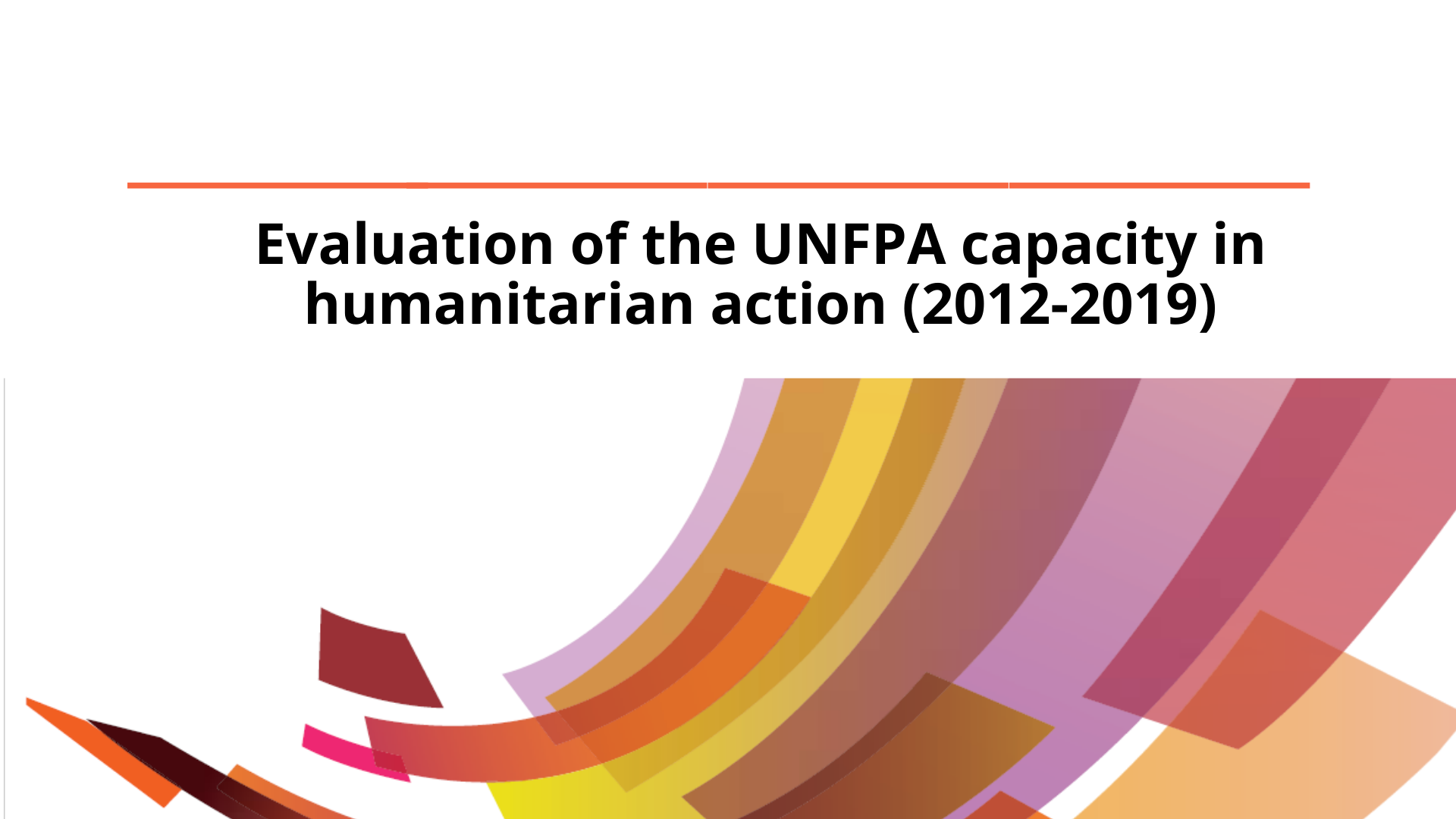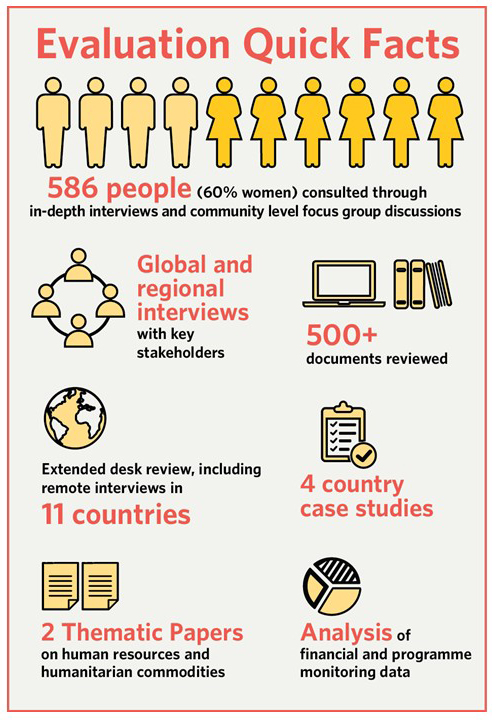
With the rise of complex and protracted humanitarian crises, UNFPA plays a critical role in ensuring that sexual and reproductive health and rights and response to gender-based violence are integrated into humanitarian preparedness, response and recovery phases.
As UNFPA humanitarian portfolio increases, UNFPA commissioned its first independent evaluation of the Fund’s humanitarian action, to assess the relevance of humanitarian programming at UNFPA; the extent to which internal systems, processes, policies and procedures allowed for efficient and timely humanitarian action; the effectiveness and coverage of humanitarian action; how connected humanitarian activities are with the longer-term vision and strategic plans of UNFPA; and the extent to which humanitarian principles, minimum standards, human rights and gender equality are integrated into humanitarian action.

Among several findings, the evaluation highlights that there has been a significant trend of improvement in humanitarian action by UNFPA and progressive, although an inconsistent, alignment of humanitarian programming with strategic directions. There are clear output-level results of maternal and new-born health services and some evidence of gender-based violence service-delivery effectiveness. However, there is a need for more robust and comprehensive measurement of outcomes and impacts.
The evaluation recommends the development of a strategic framework for UNFPA humanitarian action. It further recommends the review of datasets and monitoring systems to identify current bottlenecks and develop a comprehensive data management system to allow reporting of outputs and outcomes at all levels. In addition, the evaluation recommends a review of the corporate approach on preparedness for supplies, including, where necessary, regional stockpiling and national pre-positioning that considers speed as critical as cost and quality.